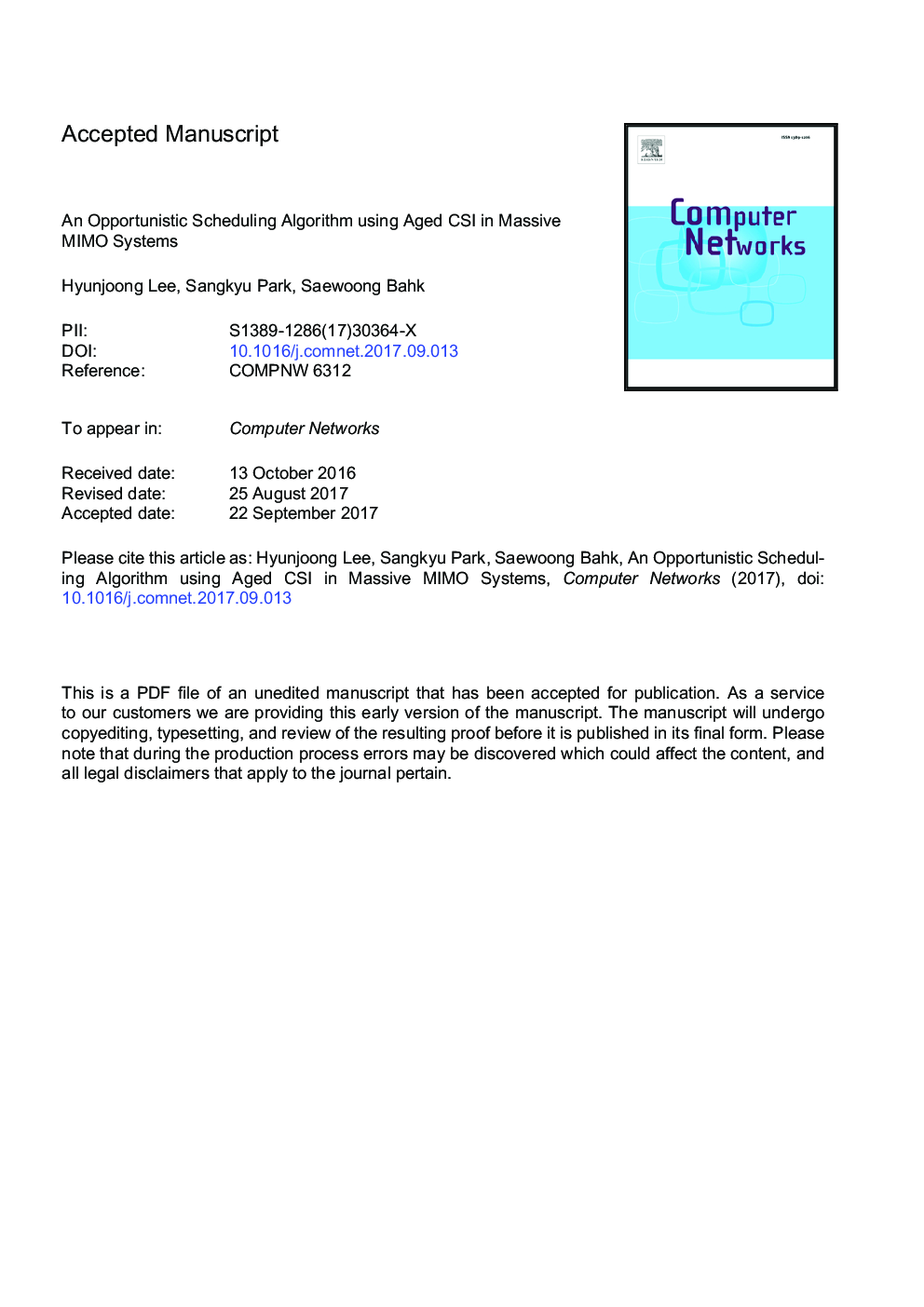| Article ID | Journal | Published Year | Pages | File Type |
|---|---|---|---|---|
| 6882850 | Computer Networks | 2017 | 38 Pages |
Abstract
In time-division duplex (TDD) massive multiple-input multiple-output (MIMO) systems, the spatial multiplexing gain cannot be fully achieved since available pilot resources at each channel coherence time interval are limited. In this paper, we propose an Opportunistic user Scheduling algorithm, termed OpSAC, that uses Aged Channel state information (CSI) to increase spatial multiplexing gain without incurring additional pilot overhead. Assuming the base station (BS) employs two popular precoders of maximum ratio transmission (MRT) and zero-forcing (ZF), we first derive their closed-form lower bounds on the achievable sum-rate under channel aging. According to the analysis results, we develop a heuristic solution that estimates the amount of channel variation for each user by using correlation of CSI samples, and exploits channel conditions to opportunistically schedule more users by using aged CSI, thereby enhancing spectral efficiency. Through numerical analysis and simulation we confirm that the proposed lower bounds are very tight, and show the impact of channel aging on the performance of massive MIMO systems. In addition, it is shown that OpSAC achieves near-optimal performance and considerably outperforms the conventional user scheduling algorithm that uses current CSI only.
Related Topics
Physical Sciences and Engineering
Computer Science
Computer Networks and Communications
Authors
Hyunjoong Lee, Sangkyu Park, Saewoong Bahk,
